Bible Study Strategies Lesson 6
Followers of the Messiah - How to do a Hebrew search
Suppose you wanted to know the places where a particular Hebrew word was written in a specific book of the Bible. How could you do this ? Let’s use as an example, the Hebrew word translated as “Sabbath”.
Step 1: Open e-Sword
Step 2: Click the binoculars symbol just below the Bibles Tool bar as shown :
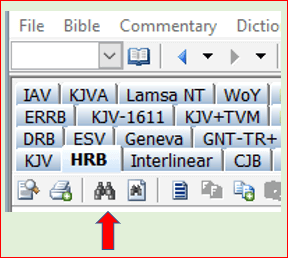
When you do, the following window opens :
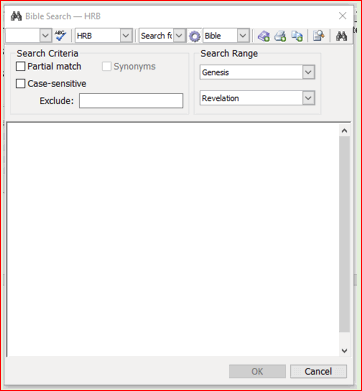
Step 3: Type in the word “sabbath” as shown below :
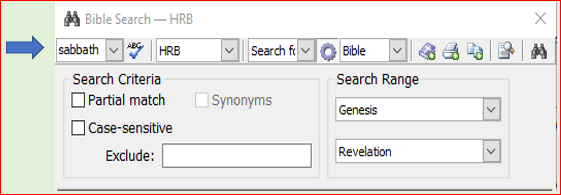
Step 4: Click the binoculars icon on the far right hand side, & the following window opens :
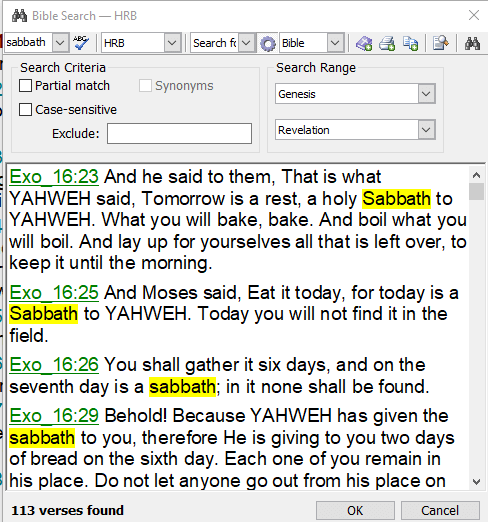
This window tells us two main things :
1: The first verse where “Sabbath” is found in the HRB is Exod 16:23, &
2: There are 113 verses where the word “Sabbath” is found.
If you click Exod 16:23, e-Sword takes you to that verse in the HRB. It is highlighted in "brown" as shown :
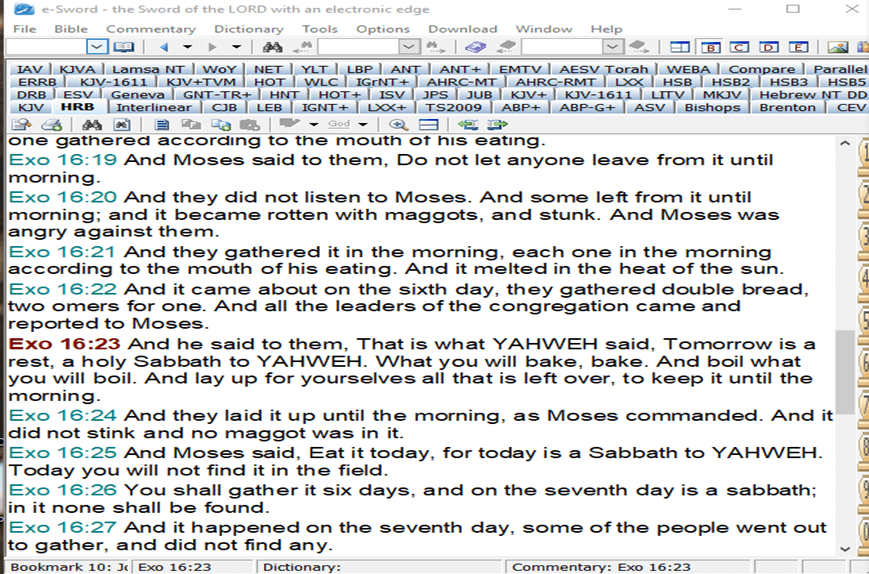
If you click the Hebrew-English Interlinear tab, you will be transferred to that version of Exod 16:23, again, highlighted in "brown", as shown below :
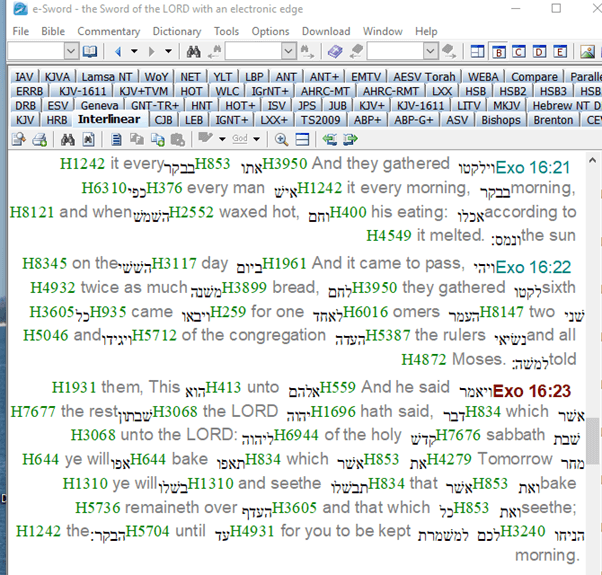

Copy this word by "highlighting" it as shown :
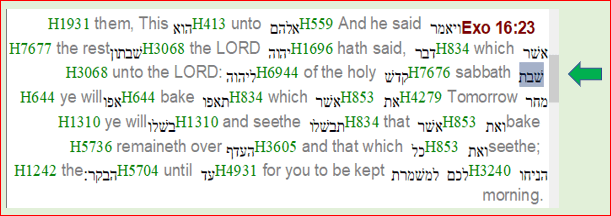
If you click the Bible Search binoculars again, the following window will open :
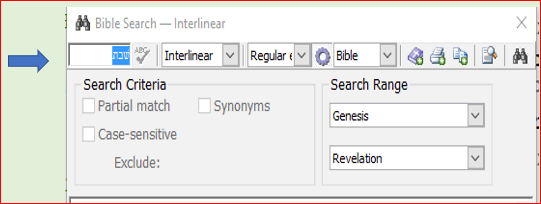
You will need to change the “search criteria” by clicking the arrow next to the word “Regular”. Select “Search for all of the words”. I apologise for not being able to show this in more detail, but you can do this by clicking the small "arrow" next to "Search fo"
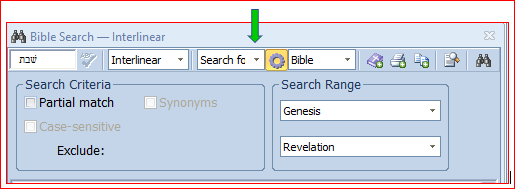
Click the binocular icon on the far right hand side. The following window will open :
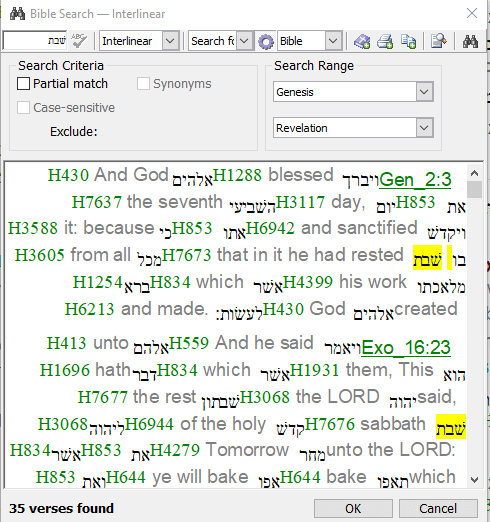

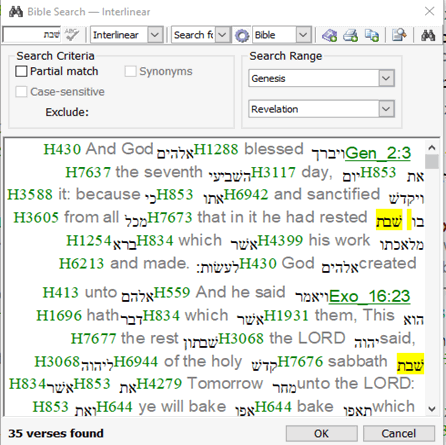
Exercises
A: Find the verses that contain the Hebrew word translated as “light”.
B: Find the verses that contain the Hebrew for a word that you choose.
Analysing the GREEK
Suppose someone said that they believed your understanding of the word translated as “fulfil” in Matt 5:17, was incorrect ? What could you do, to TEST this claim ?
While I have demonstrated how to use software to analyse Hebrew words, we also need to be able to use software to analyse Greek words.
In order to do this, we can download into e-Sword, a Greek-English Interlinear.
We can do this by once again going to biblesupport.com, & downloading the Interlinear Greek New Testament Keyed to Strong’s, as is shown :

Once we have done this, I can demonstrate how to analyse a Greek word, & even a whole verse, in the Renewed Covenant Scriptures (New Testament).
I’ll begin by examining the Greek word that is translated as “fulfil” in the KJV of Matt 5:17.
Below I have copied the KJV, & the Interlinear Greek New Testament Keyed with Strong’s translations of Matt 5:17.
Note : Greek is read left to right.
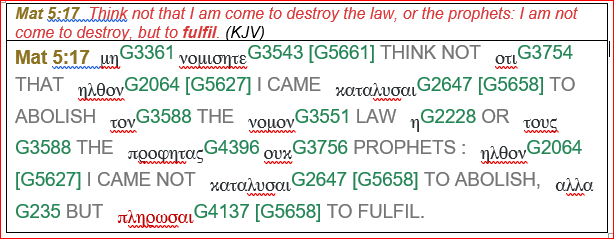

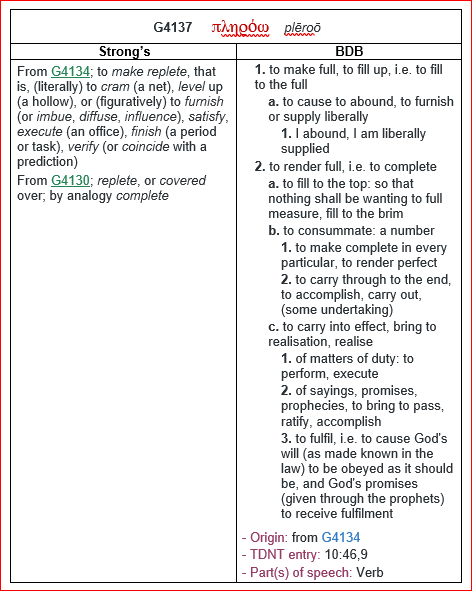 Many Christians believe, based on Col 2:14, that the Torah, the law of Moses, was “nailed to the cross”, & therefore was “done away with”, or “completed”, & thus was “ended”.
Many Christians believe, based on Col 2:14, that the Torah, the law of Moses, was “nailed to the cross”, & therefore was “done away with”, or “completed”, & thus was “ended”.
Col 2:14 Blotting out the handwriting of ordinances that was against us, which was contrary to us, and took it out of the way, nailing it to his cross;
Let's use this strategy to TEST whether this understanding is valid, & therefore correct !
There are only four verses that contain this precise Greek word, whose root is G4137. To demonstrate this, I've copied the Greek word translated as "fulfil", & carried out a search in the Renewed Covenant Scriptures. The results & verses are shown below :
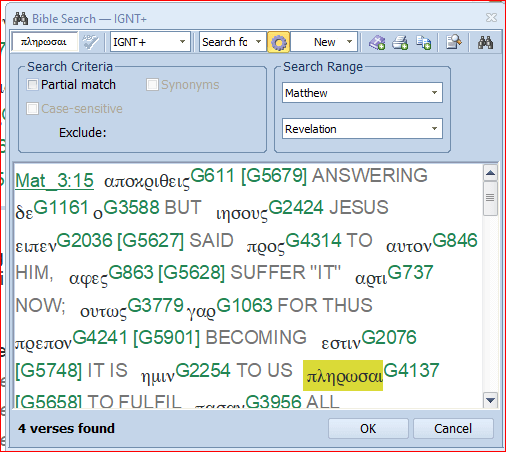

I have copied these four verses below, & inserted the possible meaning “do away with” next to the KJV translation of our Greek word. Let's read each of them carefully, & TEST whether the possible meaning, “do away with”, fits the context of each verse.

Is this possible meaning valid in each case ?

How could we TEST that idea ?
Perhaps, the first thing that we could do is to look at the surrounding verses, & see if that assists our understanding.
Mat 5:17 Think not that I am come to destroy the law, or the prophets: I am not come to destroy, but to fulfil.
Mat 5:18 For verily I say unto you, Till heaven and earth pass, one jot or one tittle shall in no wise pass from the law, till all be fulfilled (a different Greek word, G1096, γενηται to verse 17).
Reading verse 17 with verse 18, aren’t we told that :
A: Yahushua (Jesus) said, “do not think that He came to destroy (annul or demolish) the law or the prophets”
B: He came to fulfil (to teach fully, cram full) the law
C: He then said “Until heaven & earth pass, not one jot or one tittle shall pass from the Torah (law), till all be fulfilled (come to pass).
Q: Has heaven & earth passed ?
A: No - then doesn’t that mean that, not one jot or one tittle has passed from the Torah, & so, it all is applicable !
If this isn’t convincing enough, we can apply the strategy we demonstrated in lesson 2, namely, compare other places where this exact same Greek word is used.
You may remember that when using this strategy, we replace our “target” word with the possible meaning.
Let’s see what this looks like.

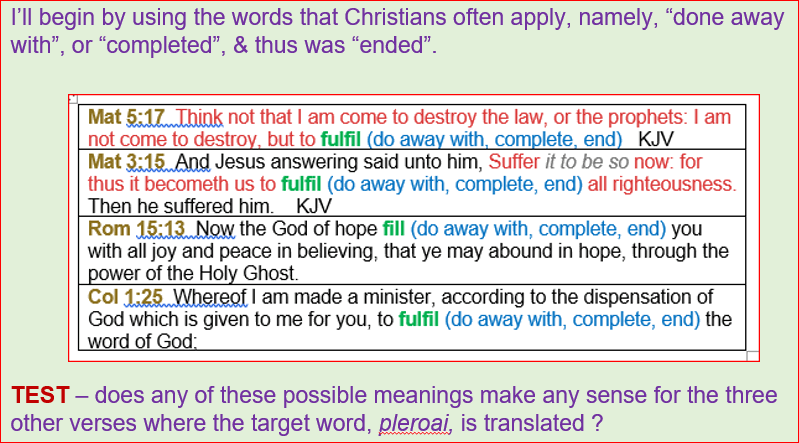
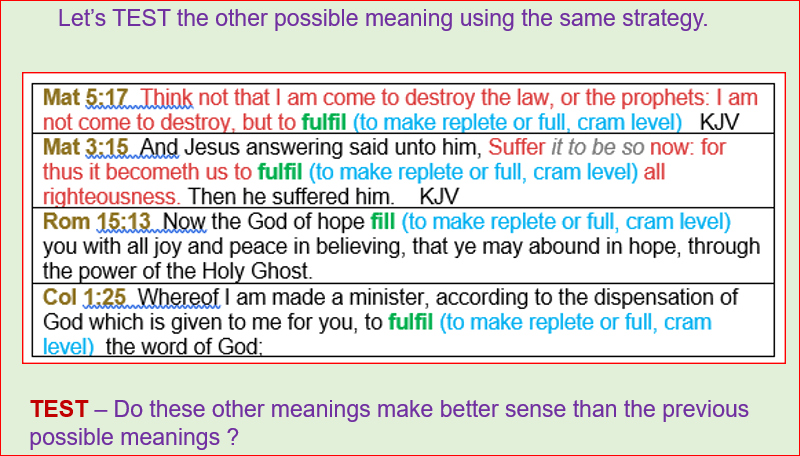
Isn't it true that, based on the above "strategy" the more correct meaning of "pleroai" in Matt 5:17 is "to make replete or full, or "to cram full". "Do away with, complete or end" are inappropraite meanings for this verse.
Exercises
In Matt 24:4, Yahushua warns us not to be “deceived”, because He says, “MANY shall come in my name, saying, I am Christ; and shall deceive many”. KJV
Do a search of the KJV Bible for the phrase “Jesus Christ”. What did you find ? Now do a search for the single word, “Christ”. What did you find ?
Q: Is the term “Christ” a personal name, & therefore, worthy of being “transliterated” ?
Q: If not, why has it been “transliterated”, & not “translated” ?
Q: Again, if you carefully examine Matt 24:5, we have the warning of Yahushua about being deceived. Copy the KJV of Matt 24:5 & compare it with the New Testament Interlinear.
Q: What is the Greek word, “transliterated” as “CHRIST” ? What does it mean ? How should it be translated ?
Q: Why do you think many translators have “transliterated” it instead ?
Isn’t this an example of “doctrinal BIAS” ?
Now that we are aware of this BIAS, how will we now respond when we read this word ?